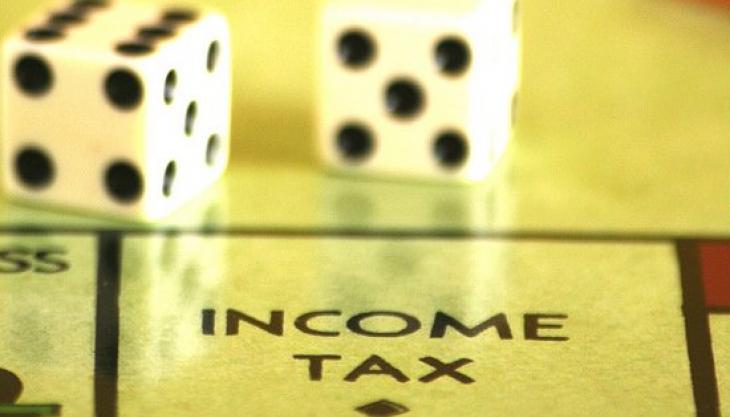Cancelled Debt Can Crush You – When Creditors Write Off Bills, Your Taxes Can Skyrocket
Submitted by Rachel R on Wed, 01/20/2016 - 9:02am

Did you know canceled debts can cause more debt? Bankruptcy can help
Image Source: Flickr User Alan Cleaver
You may feel like it’s a “win” if a creditor or debt collector gives up on a bill they’ve been trying to collect from you and “charges it off.” However, that’s not the end of the story. Sometimes, a primary creditor will charge off a debt and still hand it over to a debt collector. However, once a creditor or debt collection agency decides to wash their hands on a debt and give up, it can cause a nasty tax surprise.
Charged-off debt versus cancelled debt
A charge off is when a creditor writes the debt off their books. This usually happens with revolving accounts (like credit cards) when you haven’t made a payment for six months or more. All this does is remove it from their bookkeeping system, so they stay in compliance with the tax code.
Once they charge off, they may have a debt collection subsidiary collect it, or they may bundle up a number of charged-off accounts and sell them at a discount to a debt collection firm. However, cancelled debt means the debt has been completely abandoned, and collection efforts end.
What is a 1099-C?
A 1099-C is a form that creditors can send to the IRS (with a copy to you) for the amount of the debt that was cancelled. This is a “cancellation of debt” notice which tells the IRS that they have canceled out all or some of a debt that you owed them. You may wonder why the IRS cares.
The IRS considers debt that you don’t have to pay equivalent to income. That may seem strange, but it’s a concept called “imputed income.” This means “implied” – basically if you don’t have to pay a debt, that’s money you can use elsewhere (as far as the IRS is concerned).
The obvious downside of this is that someone who is already struggling to pay their bills doesn’t see an increase in their budget from the cancellation of debt – but they will experience an increase in their debts if the creditor issues a 1099-C. Not all creditors will, but it’s always a possibility.
What debts might generate a 1099-C?
More than six million 1099-C forms are issued by creditors each year, and these numbers are climbing as creditors are cracking down and issuing these forms in increasing numbers. If you get this form and ignore it, you can find yourself in big trouble with the IRS.
Even if you paid your debt in part, under a negotiated settlement with your creditor, they could issue a 1099-C for the remainder. For instance, if you owe $10,000 on a credit card you can’t pay, and the card issuer agrees to settle for $5,000, they can issue a 1099-C for the other $5k.
Suppose you’re late on your car payments but are close to the end of your loan. Your finance company may let you pay a lower amount in a lump to settle the loan. The difference between the loan balance and what you paid can be included on a 1099-C as canceled debt.
How to avoid a 1099-C
There are a few exceptions to your canceled debt being considered taxable income. If your house was foreclosed on, the mortgage lender can’t issue a 1099-C for the debt (at least through 2016 – the laws may change later).
Student loan forgiveness through a qualifying job program – like the Public Service Loan Forgiveness – shouldn’t trigger a 1099-C. If you can prove to the IRS you’re insolvent (i.e. you owe more than the value of your assets), you may be able to reduce the amount.
And any interest that would have been deductible on your taxes can be excluded in many cases – such as interest on a business line of credit or business asset purchase. But the surest way to avoid income taxes on forgiven debt is through bankruptcy.
Debt discharged in bankruptcy should not trigger a 1099-C
If your debts are so great you are only paying minimums on credit cards (or not making payments), are living paycheck to paycheck, and can’t save, bankruptcy may be the solution you need. Although a creditor may issue a 1099-C for debts discharged in bankruptcy, they should not and the IRS won’t enforce it.
Using bankruptcy to discharge debts you can’t afford to pay gives you a total fresh start – without the burden of unexpected income tax looming over you. To find out more about how we help North Carolina consumers get out of debt, contact the Law Offices of John T. Orcutt.
Call +1-833-627-0115 now for a free no-obligation North Carolina bankruptcy consultation at one of our convenient locations in Raleigh, Durham, Fayetteville, Wilson, Greensboro or Wilmington.
Debts Hurt! Got debt? Need help? Get started below!
Serving All of North Carolina
- Bankruptcy Attorneys Raleigh NC (North)
- Bankruptcy Attorney Fayetteville NC
- Bankruptcy Attorney Durham NC
- Bankruptcy Attorneys Wilson NC
- Bankruptcy Attorneys Greensboro NC
- Bankruptcy Attorneys Southport NC
- Bankruptcy Attorneys Wilmington NC
Bankruptcy Attorneys Raleigh NC (North)
6616 Six Forks Rd #203 Raleigh, NC 27615 North Carolina
Tel: (919) 847-9750

Bankruptcy Attorney Fayetteville NC
2711 Breezewood Ave Fayetteville, NC 28303 North Carolina
Tel: (910) 323-2972

Bankruptcy Attorney Durham NC
1738 Hillandale Rd Suite D Durham, NC 27705 North Carolina
Tel: (919) 286-1695


Bankruptcy Attorneys Greensboro NC
2100 W Cornwallis Dr. STE O Greensboro, NC 27408 North Carolina
Tel: (336) 542-5993

Bankruptcy Attorneys Southport NC
116 N Howe St. Suite A Southport, NC 28461 North Carolina
Tel: (910) 218-8682

Bankruptcy Attorneys Wilmington NC
116 N. Howe Street, Suite A Southport, NC 28461 North Carolina
Tel: (910) 447-2987
